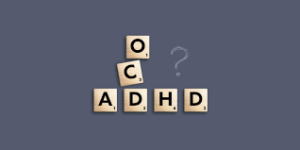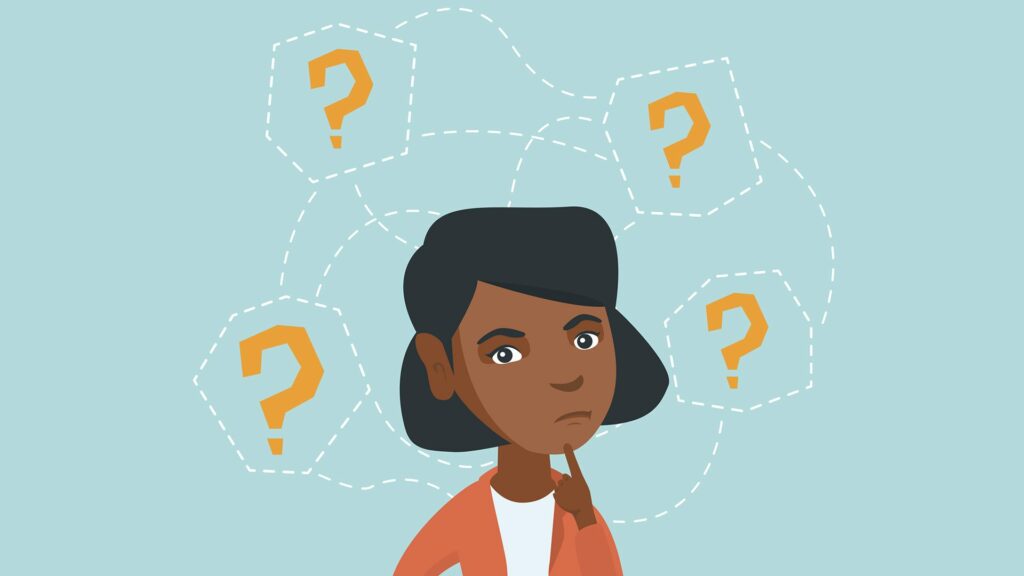Do you have intrusive thoughts? If you do, you’re not alone. Intrusive thoughts are a common symptom of ADHD. In this blog post, we will discuss what intrusive thoughts are, and how they are related to ADHD. We will also offer some tips for managing them.
Contents
Understanding ADHD And Intrusive Thoughts
 ADHD stands for Attention Deficit Hyperactivity Disorder and is a neurodevelopmental disorder that affects people of all ages. It can cause difficulty with focus, impulsive behavior, disorganization, and hyperactivity. Intrusive thoughts are involuntary thoughts that suddenly pop into one’s mind and are often disturbing or distressing in nature.
ADHD stands for Attention Deficit Hyperactivity Disorder and is a neurodevelopmental disorder that affects people of all ages. It can cause difficulty with focus, impulsive behavior, disorganization, and hyperactivity. Intrusive thoughts are involuntary thoughts that suddenly pop into one’s mind and are often disturbing or distressing in nature.
These are common experiences, but in some cases, they can become debilitating and interfere with one’s ability to function. Understanding both conditions is an essential part of managing and treating them.
Can ADHD Cause Intrusive Thoughts?
Partially yes, ADHD can cause intrusive thoughts. ADHD is a disorder of self-regulation, including difficulty regulating emotions, impulses, and attention span. This can lead to an increased likelihood of experiencing intrusive thoughts.
ADHD symptoms can manifest in many ways. In addition to hyperactivity, impulsiveness, and difficulties with focus and concentration, people with ADHD may experience intrusive thoughts or rumination. These intrusive thoughts are often recurrent, unpleasant, and difficult to control.
They may take the form of recurrent worry, doubts, fears, or concerns about topics such as one’s health, relationships, work performance, or the future. People with ADHD often have difficulty stopping these thoughts from entering their minds and this can lead to a cycle of rumination.
The inability to self-regulate may also cause one to feel overwhelmed when trying to manage intrusive thoughts and feelings. This can add an additional layer of anxiety and stress that can worsen the symptoms of ADHD. So, yes there is a higher possibility of having intrusive thoughts with ADHD.
How Are ADHD And Intrusive Thoughts Related?
 Attention Deficit Hyperactivity Disorder (ADHD) is a neurodevelopmental disorder that affects both adults and children. In the United States, approximately 10% of school-aged children have been diagnosed with ADHD. The connection between ADHD and intrusive thoughts may not be immediately obvious, but research shows they are indeed related.
Attention Deficit Hyperactivity Disorder (ADHD) is a neurodevelopmental disorder that affects both adults and children. In the United States, approximately 10% of school-aged children have been diagnosed with ADHD. The connection between ADHD and intrusive thoughts may not be immediately obvious, but research shows they are indeed related.
People with ADHD often experience intrusive thoughts, which can become disruptive and severely affect their day-to-day functioning. Intrusive thoughts are defined as unwanted, recurring, and sometimes disturbing thoughts that occur suddenly and without warning, often leading to feelings of anxiety or distress. These thought patterns are often linked to obsessive-compulsive disorder (OCD) and anxiety disorders. But they can also occur in people with ADHD.
Hence, both conditions are related in that they share similar symptoms. In fact, it can be difficult to differentiate between the two when it comes to intrusive thoughts. Some research even suggests that ADHD and OCD are both part of a spectrum disorder, known as “OCD-spectrum disorders.”
Can ADHD Be Mistaken As OCD?
ADHD (Attention Deficit Hyperactivity Disorder) and OCD (Obsessive Compulsive Disorder) are two very different mental health conditions, but they can both involve intrusive thoughts. And because of this, there is a high risk of misdiagnosis and mistreatment.
People with ADHD can have intrusive thoughts just like people with OCD, but the underlying causes are different. In general, intrusive thoughts in people with ADHD are more related to impulsivity than obsessive behavior.
For example, people with ADHD may experience intrusive thoughts that are related to impulsivity such as difficulty concentrating or making decisions quickly. Alternatively, in people with OCD, intrusive thoughts may be more about obsessive behaviors or perfectionism.
So, in many cases, ADHD can be mistaken for OCD based on the presence of these thoughts. But, because the underlying factors are different, it is important to get an accurate diagnosis in order to receive appropriate treatment.
The good news is that both ADHD and OCD can be managed with medications, therapies, lifestyle changes, and other strategies. So, seek out help today for a better tomorrow!
What Are Some Examples?
 There could be several examples of intrusive thoughts related to ADHD. Individuals might experience intrusive thoughts such as:
There could be several examples of intrusive thoughts related to ADHD. Individuals might experience intrusive thoughts such as:
- “I’m a bad person,”
- “I’m going to make a mistake,” or
- “Everyone is judging me.”
These types of thoughts can be overwhelming and cause an increase in anxiety. In addition, individuals with ADHD may have difficulty managing their emotions, which could lead to more thoughts.
Some other symptoms might include:
- Difficulty concentrating on tasks
- Decreased ability to stay organized
- Insomnia or other sleep disturbances
- Racing thoughts that are difficult to control
- Mood swings and irritability
Keep these symptoms in mind if you think your intrusive thoughts might be related to the condition. It is important to speak with a qualified mental health professional to get an accurate diagnosis and receive the appropriate treatment.
How Do I Stop Intrusive Thoughts With ADHD?
It is possible to reduce the number and intensity of intrusive thoughts with ADHD. Focusing on healthy lifestyle habits and implementing strategies to manage symptoms can help improve self-awareness, emotional regulation, and executive functioning skills.
A few steps that may help reduce intrusive thoughts include:
- Practice mindfulness – Consciously focus your attention on what you are feeling in the present moment.
- Challenge negative thinking – Recognize irrational thinking and challenge them with positive affirmations.
- Exercise Regularly – Engaging in regular physical activity has been linked to improved cognitive functioning, emotional regulation, and overall well-being.
- Develop a support system – A strong support system can help you manage symptoms and stressors more effectively.
- Utilize medication – Medication, such as stimulants or antidepressants, can be useful in managing ADHD symptoms. Talk to your doctor to determine if the medication is right for you.
By employing these strategies, individuals with ADHD may be able to reduce the frequency and intensity of these thoughts. It is important to remember that managing symptom of ADHD can be a long-term process, so it is essential to be patient and consistent with these interventions.
Consulting a mental health professional can be beneficial in helping to manage the condition and its associated thoughts. A therapist can help you identify triggers and develop effective coping strategies to reduce intrusive thoughts. They can also provide valuable insight and support throughout your journey toward better mental health.
No matter the intensity of symptoms or triggers, know that there is hope for managing ADHD and its related intrusive thoughts. With patience, dedication, and the proper resources, these issues can be effectively managed!
Conclusion
To conclude, ADHD and intrusive thoughts are often related and can be difficult to manage. It’s important for people with ADHD to seek treatment for their condition in order to reduce the frequency of these thoughts. Talk therapy, cognitive behavioral therapy, and medications may all be beneficial in managing both conditions.
With good self-care practices and regular treatment, it is possible to reduce the occurrence of intrusive thoughts and find relief from their effects. With professional help and support, you can learn to manage both ADHD and intrusive thoughts more effectively. We provide effective online ADHD counseling.
For more information and guidance, please contact OCDMantra. OCD is a mental health disorder characterized by obsessions and compulsions. If you have any queries regarding OCD treatment, ERP therapy experienced therapists at OCDMantra can help: Book a trial OCD therapy session


